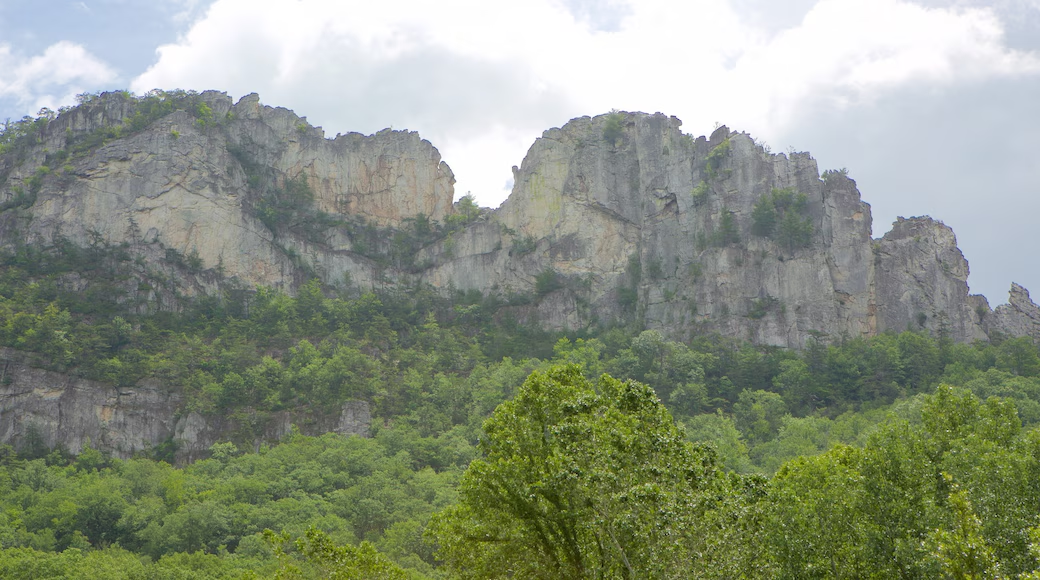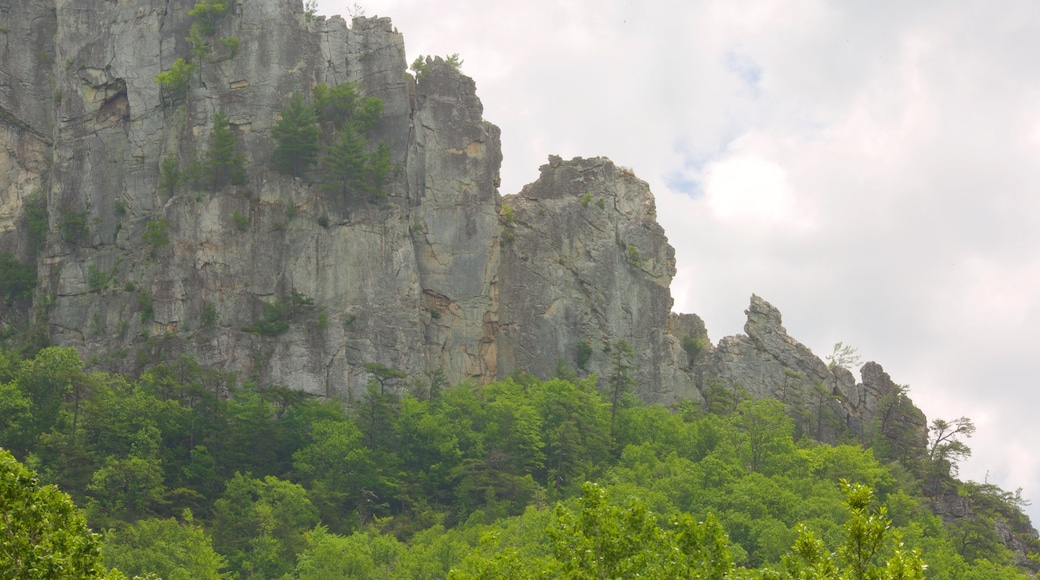This small mountain town is best known for its eponymous rock formation, which attracts a steady stream of climbers to the region.
The town of Seneca Rocks is a small hamlet with a handful of stores and businesses. What draws people here are the tranquil surrounding mountain landscapes. Challenge yourself to complete demanding climbing trails on the magnificent rock formations or enjoy less extreme outdoor activities such as canoeing and swimming.
A famous landmark in West Virginia, the Seneca Rocks rise 900 feet (275 metres) above the North Fork River and provide more than 375 climbing routes. Come and admire the imposing formations from ground level. If you are an experienced climber, tackle one of the challenging routes. Find maps and other trail information at the Seneca Rocks Discovery Centre. From the observation deck, look for brave climbers scaling the sheer rock face.
If the views inspire you to try climbing, sign up for lessons from the local climbing school or from mountain guides. Hiking trails leading from the Discovery Centre offer less skilled climbers an easier way to ascend the rocks.
Going in the opposite vertical direction, descend to the depths of the Smoke Hole Caverns. The stalagmite- and stalactite-filled chambers were originally used by Seneca Indians to smoke wild game, hence the name. Later settlers made whisky here. Today, access the cavern only by guided tour.
Anglers who purchase a licence can fish in the trout-stocked section of the North Fork River near the Discovery Centre. Check regulations requiring artificial lures and catch-and-release rules.
Stay at one of the campgrounds in the area or rent a cabin. Pick up supplies in town at Harper’s General Store, an independent business that has been in operation since 1902.
Seneca Rocks is part of the large Monongahela National Forest. It is less than a 3-hour drive from Washington D.C. and about 3.5 hours from Pittsburgh. Arrange your trip for between April and October when the Discovery Centre and campgrounds are open and hiking and climbing conditions are favourable.







